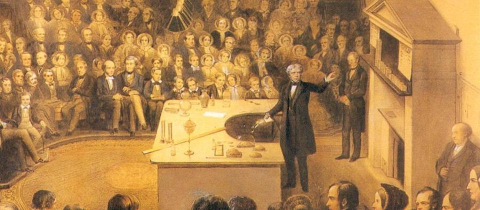A new study in the British Medical Journal might be enough to ruin your Christmas mood because it suggests that the risk of having a heart attack is higher during the holidays and on Christmas Eve in particular.
Swedish researchers looked at their national registry, the Swedish Web System for Enhancement and Development of Evidence-Based Care in Heart Disease Evaluated According to Recommended Therapies (SWEDEHEART), and looked for patterns of when people have heart attacks.
They found that the highest number of heart attacks occurred during the Christmas and Midsummer holidays, with the highest risk occurring on Christmas Eve. Interestingly, they found no link between heart attacks and sporting events. Finally, they saw that heart attacks tend to spike on Mondays, thereby proving once and for all that Garfield was right to hate Mondays.
The interesting aspect of this study is that other groups have found similar results, although not everything is entirely consistent. A 2004 American study found a spike on Christmas Day and New Year’s Day, with the summer months having relatively few events. Although it is worth noting that in 2 years (1973 and 1981) there was no holiday spike. An earlier study in 1999, also found a spike in heart attacks in December and January although they did not specifically look at Christmas Day and New Years. Interestingly this study looked at records from Los Angeles County where one could hardly blame low temperatures on the risk of a “Christmas Coronary.”
It is possible that this whole phenomenon is statistical noise. Publication bias may be playing a role here since studies with more interesting findings tend to be get published more easily. Had investigators found that heart attacks spiked on January 29, we would probably never have heard of the study and the media would probably not have made such a big fuss about it.
Another possible explanation is that the cold weather of midwinter is provoking the heart attacks. This is certainly possible since cold temperatures cause vasoconstriction which can impair blood flow to the heart and shovelling snow can put a strain on the heart, especially in those who do not regularly exercise. Of course this wouldn’t explain why the same patterns are also seen in southern California.
A fairly plausible explanation is that the emotional stress of the holidays and the overindulgence in food and alcohol may explain the observed spikes in heart attacks, although it would not explain why the SWEDEHEART investigators saw a spike in mid-summer. Another possibility is that people delay in seeking medical care during the holidays. Perhaps it is the desire to see the holidays through that make people ignore their own health until early January when they can get back into their routine.
The real question though is what to do with the information. One cannot cancel Christmas and there is very little we can do about the weather. One can however choose not to overindulge, although we should probably be doing that year round. The real take home message here is that the holidays are no excuse to ignore your health. The hospitals are open 24/7, even during the holidays, so if people are having health issues they should make use of the health system and not delay. Although I can understand the desire not to ruin the holidays for others, it would be worse not to see the next one.
Want to comment on this article? Visit our FB Page!







